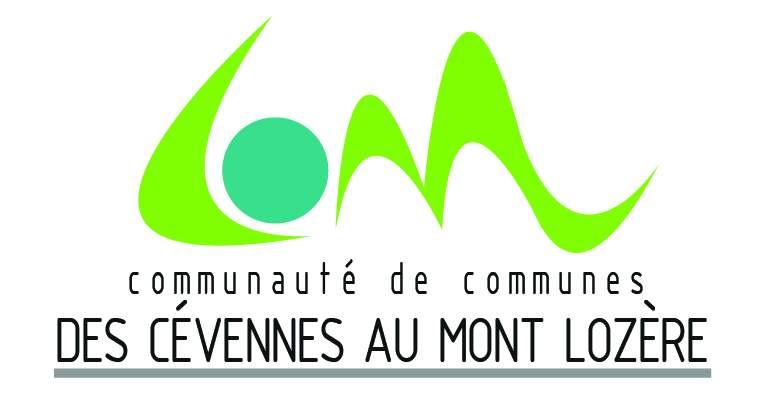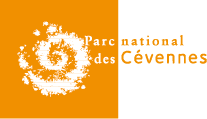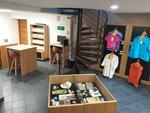
Rocher du Trenze and Bayardet, Trail #20
6 points of interest

Mas de La Barque - nathalie.thomas  History
HistoryLe Mas de La Barque
Le Mas de La Barque was only a forester’s house at the end of the 20th century. From the 1960s onwards, it was frequented by children’s ski clubs and then by families from the Gard on the weekend. During the week, the association “Union pour l'Animation de la Grange” organised field trips, heritage classes and theme days open to all. A costly infrastructure was gradually built (buildings, ski lifts, snow canons), then partly demolished again. Today, as part of an overall programme of reclassifying the site, it has been developed for tourism (cross-country skiing, snowshoeing, dog-sledding, etc.) and is run by a semi-public company. The resort offers outdoor activities in summer as well as in winter.
Rocher de la Barque - © Biotope  Tradition
TraditionThe mysterious boat
Have you noticed the strange rock shaped like a boat (barque)? Is that what gave the hamlet its name? Alternatively, in the local patois, a berque is a gap in the mountain. So: Mas de la Barque or Mas de la Berque?
Mas de la Barque is part of the municipality of Vialas and borders the forest of Gourdouze. The estate of the Priory of Gourdouze, to which the forest once belonged, was declared government property during the French Revolution in 1789, before being sold to pay the state’s debts.
Zone humide - nathalie.thomas  Flora
FloraSphagnum moss
You will be crossing wetlands where sphagnum moss lives, whose colour ranges from yellowish green to blood-red. Without them, the role of peatbogs would be seriously compromised. Once dead, they constitute the mainstay of peat and limit the establishment of competitors. They function like sponges, retaining a great deal of water and asphyxiating the roots of other plants. Their presence is a sign that the peatland is in good health; it facilitates the growth of species of great heritage interest, such as the sundew, cranberry, bog-rosemary, etc. Unfortunately, these are fragile and sensitive to crushing, so please stay on the path and get off your bike.
Troupeau au dessus de Gourdouze - nathalie.thomas  Know-how
Know-howSlash-and-burn
This technique consists of clearing weeds and shrubs using fire: the fire is utilised to get rid of broom, especially in places that a motorised shredder cannot access. Slash-and burn is carried out every 4 to 5 years in a zone chosen by the farmer. Over larger areas, it is supervised by the fire brigade. In the 19th century, 100,000 sheep migrated to summer pastures here (transhumance) and joined the plateau herds, leaving no room for broom. As soon as the meadows are no longer grazed, they are colonised by broom, then shrubs, then forest. These open spaces are due to human activity (clearing) to allow herds to graze on grass. Grazing prevents the spontaneous growth of shrubs and any generalised invasion of forest.
Crête de Trenze - nathalie.thomas  Geology
GeologyThe formation of Mont Lozère
This ancient massif consists of granite which, as magma, was pushed up from the depths of the Earth to its crust, through the schist. Slow cooling caused fractures, called joints, which allow water to infiltrate deep into the rock and alter it. This crystalline rock, which is composed of mica, quartz and feldspath, erodes slowly under the action of rain and frost, creating the rounded shapes that are characteristic of Mont Lozère.
Col de Montclar - N Thomas  History
HistoryMontclar
This site, today reduced as a single barn, was once a hamlet as the many vestiges marking the landscape show : a mill with its race, enclosures near the houses, access tracks, etc.
It was also a strategic site, since it is said that in the gardens of Montclar farm there is an enormous dressed stone slab called “the Lords’ table”, which used to mark the limit of the castellanies of Montclar and Tarn (in nowadays Lozère) and of the castellanies of Génolhac and Porte (in today’s Gard district) (text : Francis Tillault, from the collection of walks Autour du Parc 10)
Description
A short but steep section leads you to splendid panoramic views over the Cévennes and announces a grand descent along Le Trenze cliffs.
At the Rocher du Trenze, the descent becomes steeper and more technical, until you reach the Col de Montclar pass.
Then a short portion on a track before you take a cheerful singletrack that is rather steep.
At Les Bouzèdes, the hardest part of the ascent is over. Just one more uphill kilometre on a path before reaching the track.
The circuit ends with 2 km of level ground on a pretty forest track.
A short version, waymarked 20v, lets you shorten the circuit to 10 km.
Follow the waymarks for trail #20.
Signposts will guide you all along this route, as well as yellow painted waymarks. In the description below, the signposted place names and/or directions are given in bold italics between quotation marks:
Starting at "Mas de La Barque", head for "Col de Montclar" via "Les écuries de Mas de La Barque", "Rochers de la barque" (2x), "Les faux des Armes", "La Chassalde", "La jasse d'Olibou", "Sous le Col de Montclars".
At "Col de Montclars", go to "Soubre Montclars".
Then return to "Mas de La Barque" via "Soubre Redounde", "Les Bouzèdes", "Bouos d'homme", "La roche fendue", "Sous la roche fendue", "Gadione" (2x), "Rochers de la Barque " (2x) and "Les écuries du Mas de La Barque".
This trail is taken from the guidebook Mont Lozère - Pays des sources, published by the Pôle de pleine nature du mont Lozère.
- Departure : Mas de la Barque
- Arrival : Mas de la Barque
- Towns crossed : Pont de Montvert - Sud Mont Lozère and Vialas
Forecast
Altimetric profile
Recommandations
Information desks
Tourism'house and national parc, Génolhac
Place du Colombier, 30450 Génolhac
This office is part of the National Park's associated tourist-information network, whose mission is to provide information on, and raise awareness of, the sites and events as well as the rules that must be observed in the National Park's central zone.
Open from april to october
Office de tourisme Des Cévennes au mont Lozère
le Quai, 48220 Le Pont de Montvert sud mont-Lozère
Tourism office Mont-Lozère, Villefort
43, Place du Bosquet, 48800 Villefort
This office is part of the National Park's associated tourist-information network, whose mission is to provide information on, and raise awareness of, the sites and events as well as the rules that must be observed in the National Park's central zone.
Open year-round
Le Mas de la Barque outdoor centre
48800 Villefort
This centre is part of the National Park's associated tourist-information network, whose mission is to provide information on, and raise awareness of, the sites and events as well as the rules that must be observed in the National Park's central zone.
Access and parking
From Génolhac, on the D 362 then the D 66.
Parking :
Calculateur d'itinéraire Lio
Utilisez le calculateur liO pour organiser votre trajet en région Occitanie.
Autres régions
Calculez votre itinéraire en Auvergne Rhône Alpes sur Oùra
Biodiversité autour de l'itinéraire
Source


Report a problem or an error
If you have found an error on this page or if you have noticed any problems during your hike, please report them to us here:






